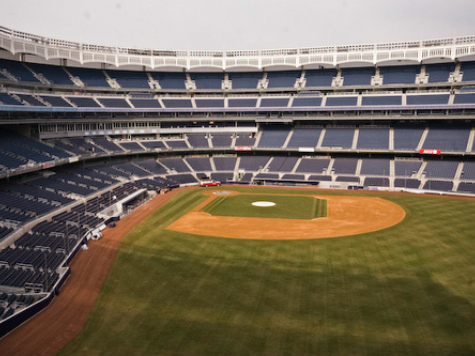The NFL loves staging games on Thanksgiving, the NBA on Christmas, and the NHL on New Year’s Day. What’s so special about July 16 that Major League Baseball awards their players a day of rest and reflection?
Is it to commemorate the anniversary of the Battle of Bull Run or celebrate Will Ferrell’s birthday? Perhaps the respite stems from a baseball-specific reason. Seventy-three years ago today Joe DiMaggio hit in his 56th-straight game. Maybe it’s not a day to celebrate a feat but to lament a folly. The Pirates played their first game in Three Rivers Stadium–an ugly, ruggy, multipurpose monstrosity–on July 16, 1970.
This day is unlike any other on the calendar. The four major professional sports, after 363-straight days of ticketed events, lock the turnstiles, evade the airwaves, and keep every seat empty immediately after the Midsummer Classic. It’s silent at the stadium. It’s dark under the dome.
Rotisserie baseball players, degenerate gamblers, and couch potatoes suffer withdrawals. The ESPN programmers party like it’s 1979, searching for the nearest bowling alley, lumberjack competition, and Betamax tape of a Nick Bockwinkel-Larry Zbyszko AWA no-count-out, no-disqualification match to broadcast. Sports bars dust off Trivial Pursuit, cart out the karaoke machine, and permit those tattooed guys with acoustic guitars combining a surfeit of earnest emotion and a deficit of talent that one scrambles to hit mute upon a YouTube encounter with to actually play other people’s songs before live paying customers. Desperate times call for desperate measures.
One unconsidered option to pass the oppressive time involves a jailbreak from the stands onto the field. On the one day when beautiful parks named after soulless corporations lay dormant, we notice. On the 364 days when fields once teeming with children and concrete courts once screaming swish remain evacuated and quiet, we see normal. We’ve been Facebooked, iPhoned, and Xboxed away from healthy. The vitamin-D deficient, amoeba-like shut-ins who invented the gadgety and gizmoish electronic time-wasters have really invented a world that looks like them.
The day without spectator sports calls for a day of participatory sports. America needs this now more than ever.
We bring fewer kids into the world who take up more space. Children appear too few, too fat, and too fatherless, all of which results in an overweight generation without peers to play with or dads to teach them the athletic pastimes of their dads. Neighborhood stickball games, black-and-blue buck-buck, pick-up basketball on-demand among strangers, and even fathers and sons playing catch all strangely strike as anachronistic. A nation of watchers has conquered a nation of doers.
We’re living in an earlier America’s version of The Twilight Zone. If you look hard enough, in the “middle ground between light and shadow, between science and superstition,” you can see them. You can see the fallen and forgotten gym rats and kids who played long past the street lights flickering on and the masters of H-O-R-S-E all wondering why people who can play won’t.
In the eerie quiet of Fenway Park, the ghost of Tony Conigliaro conducts a one-man home-run derby in batting practice. Four hundred miles south, Len Bias bounces an inbounds pass off an opponent’s back to assist himself on his own basket. Hobey Baker steps out of an F. Scott Fitzgerald novel and onto the outdoor ice again. Pat Tillman runs to the roar of the crowd at Sun Devil Stadium.
Their ghosts whisper to us if we’ll listen: Sports are fun to watch; they are better to play.
Daniel J. Flynn, the author of The War on Football: Saving America’s Game (Regnery, 2013), edits Breitbart Sports.

COMMENTS
Please let us know if you're having issues with commenting.